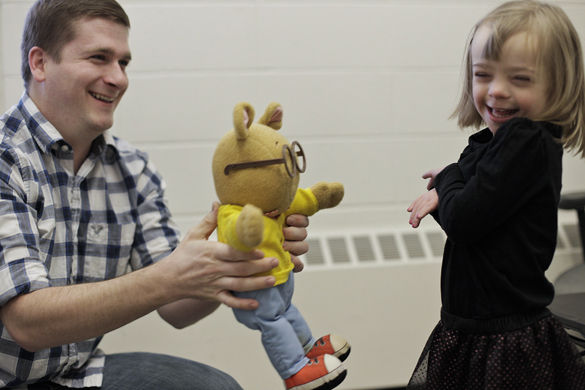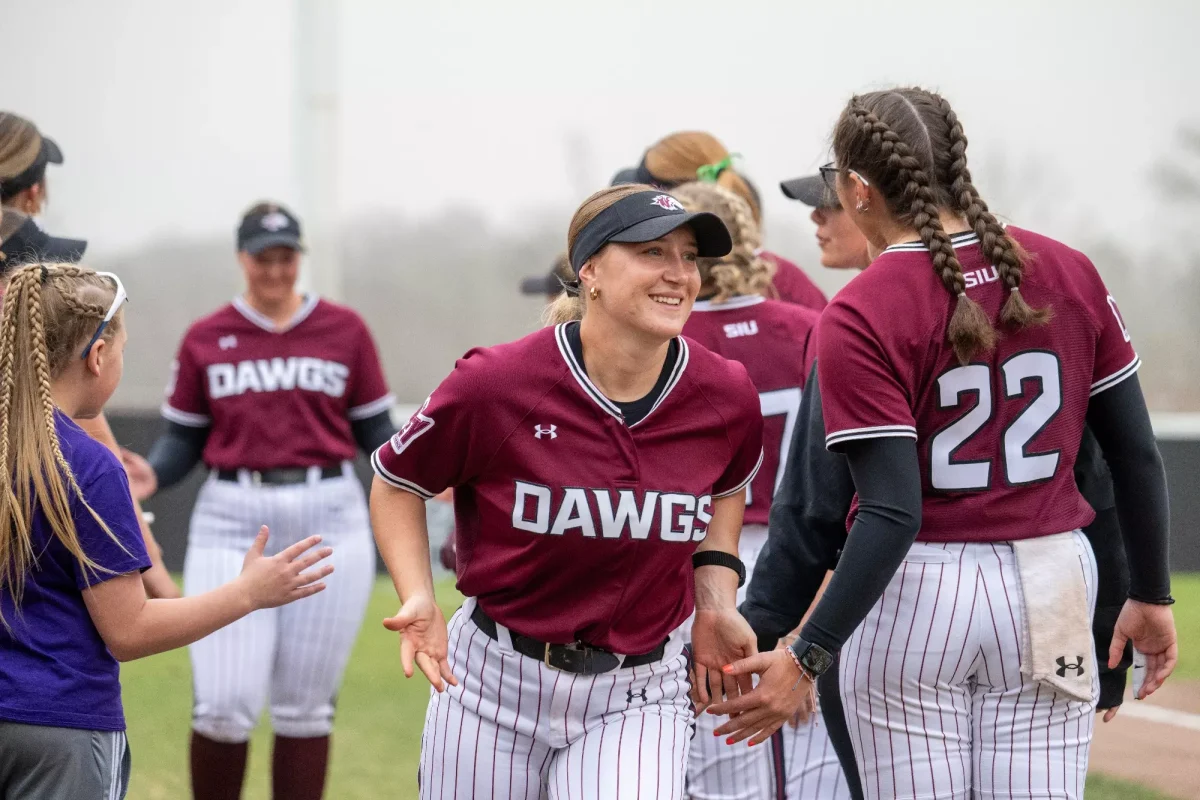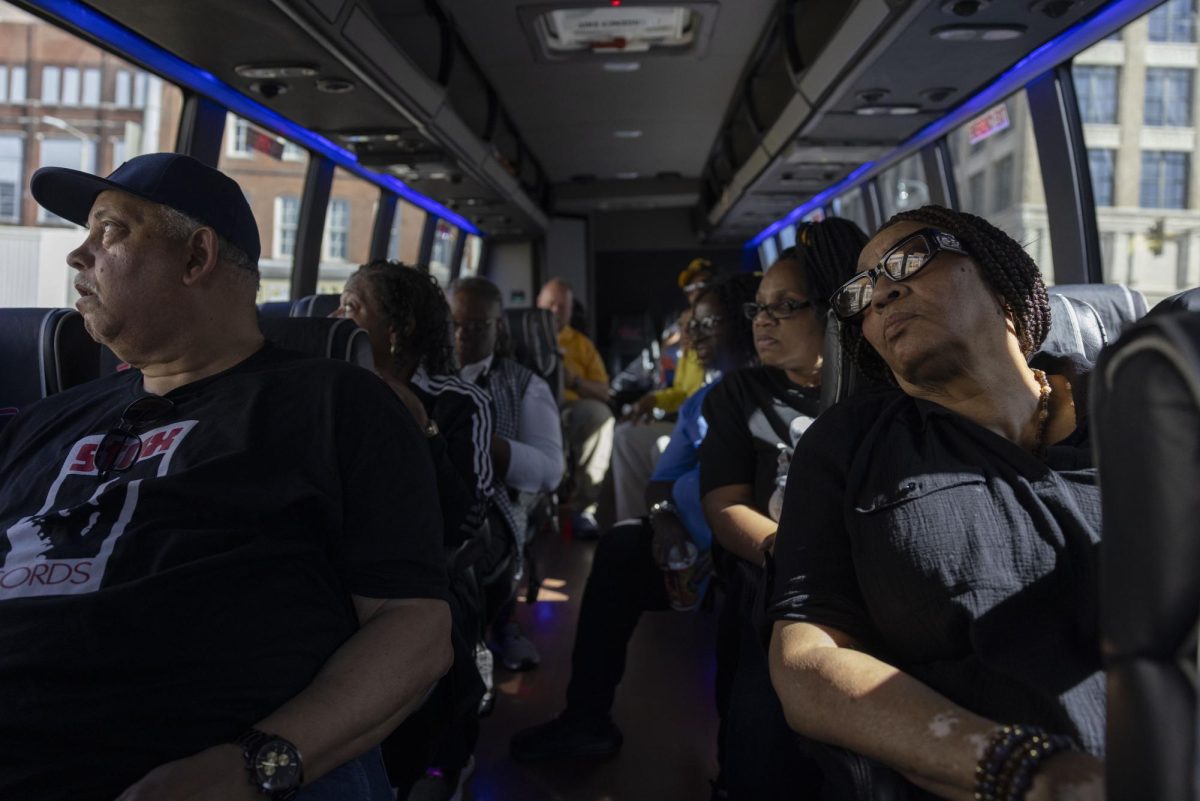Students give back to children with behavioral disabilities

Caleb Stanley, left, a doctoral student in behavior analysis and therapy from Walnut, Miss., offers Faith Teckenbrock, 4, an “Arthur” doll Feb. 15 in a therapy room of the Language and Cognition Development Clinic in Rehn Hall. During therapy sessions, clients complete tasks such as pointing to symmetrical shapes on a page. Once a group of tasks is completed, the clinician facilitates play with the client. Karl Gunnarsson, a doctoral student in behavior analysis and therapy from Iceland, said the in between playtime helps keep young clients engaged. (Aidan Osborne | Daily Egyptian)
February 15, 2016
Faith Teckenbrock, a 4-year-old from Herrin, sat behind a one-way mirror Monday and revealed a toothy grin as she pointed to matching images in a book held in front of her. Teckenbrock, who has Down syndrome, is a participant in the recently-opened Language and Cognition Development Clinic at SIU’s Rehabilitation Institute in Rehn Hall.
Mark Dixon, a behavioral psychology professor at SIU, started the clinic in October. The program, which is free and open to the community, helps children with learning disabilities such as Down syndrome, autism and ADHD by providing 90-minute one-on-one therapy and intervention sessions led by graduate students.
The clinic has since expanded to include 15 families with children ages 3 to 12 and continues to take more clients.
Advertisement
“Most of them are there for help with increasing their language and cognitive abilities,” Dixon said.
He said the program, at no cost to the university, uses clinical and therapeutic approaches modeled after those in his books.
“These are services that typically cost about $150 an hour if they were to get private therapy,” Dixon said. “It seemed like a logical thing to do on campus given that we had the resources available here.”
Faith’s mother Krista, whose older daughter Mary is intellectually impaired, said she hopes the clinic can close the communication gap between her daughters and their peers.
The program starts each client with an assessment that allows students to determine what skills the children do and do not have, said Caleb Stanley, who works with Faith.
“It’s very individualized for the clients,” said Stanley, a doctoral student in behavior analysis and therapy from Walnut, Miss. “Every day is a new experience. It’s really cool to see them progress as time goes on.”
Stanley’s clinic supervisor, Karl Gunnarsson, a doctoral student in behavior analysis and therapy from Iceland, watched through the glass as Stanley offered Faith a colorful necklace made of Easter eggs.
Advertisement*
Leslie Koth, whose 4-year-old daughter Mia was one of the first kids to join the clinic, said she had difficulties finding treatment for Mia, who is autistic, because affordable options in the region are scarce.
“It was a very difficult time for our family,” Koth said. “[The clinic] came into our lives when we were emotionally drained parents who didn’t know what to do or where to go.”
She said the students have shown her a lot about how to teach her daughter at home. Now, after four months at the clinic, Mia is talking more and has made noticeable progress, she said — all at no cost to the family.
Dana Paliliunas, a doctoral student in behavior analysis and therapy from Chicago who helped Dixon create the program, said providing it for free seemed like the right thing to do.
“It’s important because the kids are in need of it,” Paliliunas said.
Anna Spoerre can be reached at aspoerre@dailyegyptian.com or 618-536-3325.
Advertisement









